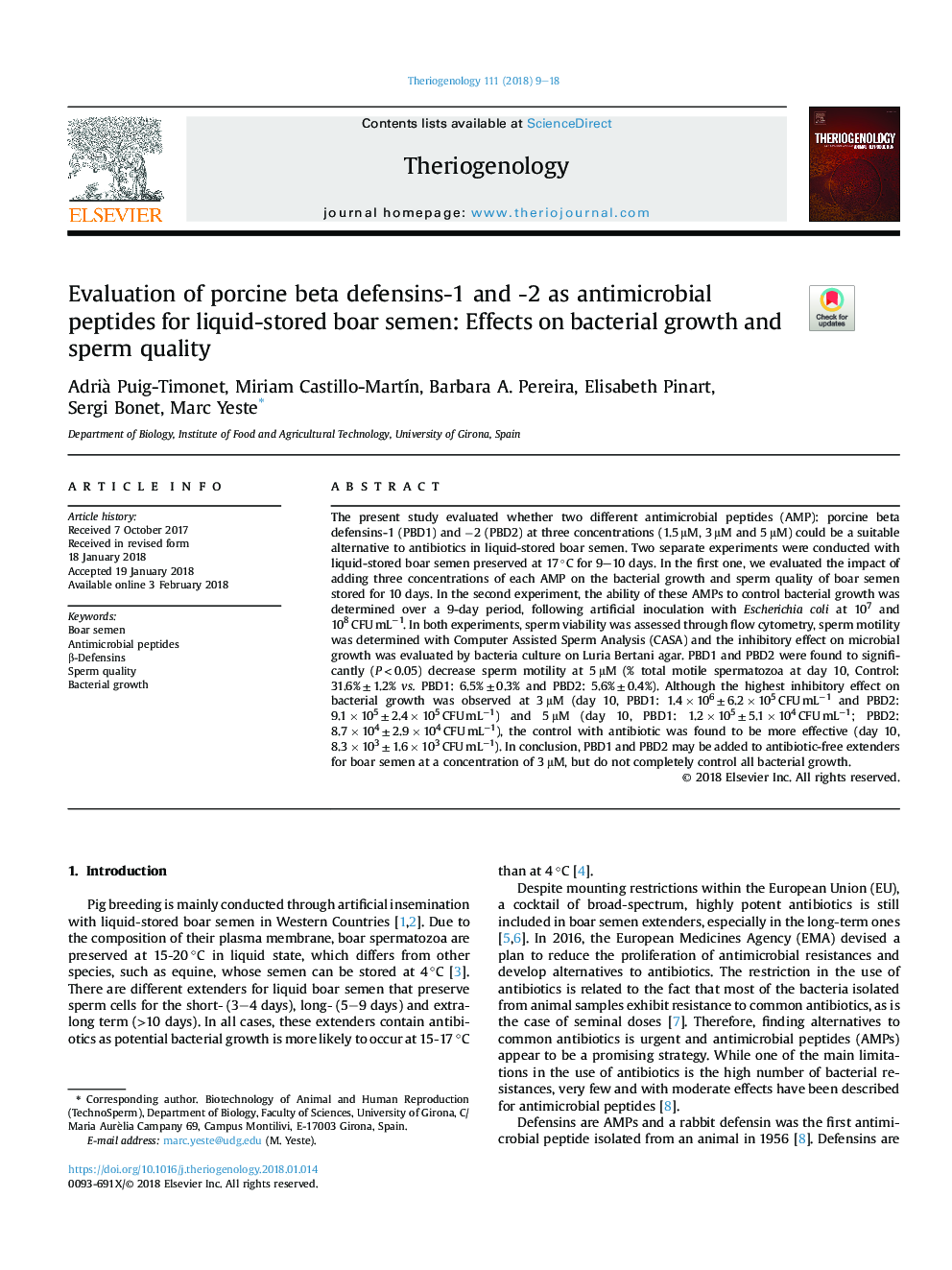| Article ID | Journal | Published Year | Pages | File Type |
|---|---|---|---|---|
| 8427260 | Theriogenology | 2018 | 10 Pages |
Abstract
The present study evaluated whether two different antimicrobial peptides (AMP): porcine beta defensins-1 (PBD1) and â2 (PBD2) at three concentrations (1.5â¯Î¼M, 3â¯Î¼M and 5â¯Î¼M) could be a suitable alternative to antibiotics in liquid-stored boar semen. Two separate experiments were conducted with liquid-stored boar semen preserved at 17â¯Â°C for 9-10 days. In the first one, we evaluated the impact of adding three concentrations of each AMP on the bacterial growth and sperm quality of boar semen stored for 10 days. In the second experiment, the ability of these AMPs to control bacterial growth was determined over a 9-day period, following artificial inoculation with Escherichia coli at 107 and 108â¯CFUâ¯mLâ1. In both experiments, sperm viability was assessed through flow cytometry, sperm motility was determined with Computer Assisted Sperm Analysis (CASA) and the inhibitory effect on microbial growth was evaluated by bacteria culture on Luria Bertani agar. PBD1 and PBD2 were found to significantly (Pâ¯<â¯0.05) decrease sperm motility at 5â¯Î¼M (% total motile spermatozoa at day 10, Control: 31.6%â¯Â±â¯1.2% vs. PBD1: 6.5%â¯Â±â¯0.3% and PBD2: 5.6%â¯Â±â¯0.4%). Although the highest inhibitory effect on bacterial growth was observed at 3â¯Î¼M (day 10, PBD1: 1.4â¯Ãâ¯106â¯Â±â¯6.2â¯Ãâ¯105â¯CFUâ¯mLâ1 and PBD2: 9.1â¯Ãâ¯105â¯Â±â¯2.4â¯Ãâ¯105â¯CFUâ¯mLâ1) and 5â¯Î¼M (day 10, PBD1: 1.2â¯Ãâ¯105â¯Â±â¯5.1â¯Ãâ¯104â¯CFUâ¯mLâ1; PBD2: 8.7â¯Ãâ¯104â¯Â±â¯2.9â¯Ãâ¯104â¯CFUâ¯mLâ1), the control with antibiotic was found to be more effective (day 10, 8.3â¯Ãâ¯103â¯Â±â¯1.6â¯Ãâ¯103â¯CFUâ¯mLâ1). In conclusion, PBD1 and PBD2 may be added to antibiotic-free extenders for boar semen at a concentration of 3â¯Î¼M, but do not completely control all bacterial growth.
Related Topics
Life Sciences
Agricultural and Biological Sciences
Animal Science and Zoology
Authors
Adrià Puig-Timonet, Miriam Castillo-MartÃn, Barbara A. Pereira, Elisabeth Pinart, Sergi Bonet, Marc Yeste,
